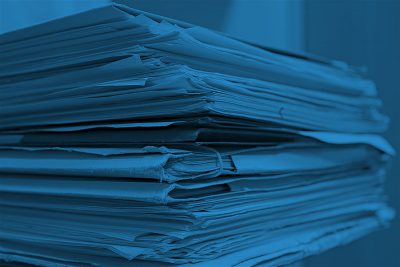Weigh Your Options for Cashing in on Outstanding Invoices
When you need cash now, but it takes weeks – or even months – to collect on outstanding invoices from customers, it’s important to know your options for converting outstanding receivables into ready cash.
Line of credit
A line of credit can help bridge the “cash gap” between performing work for customers and getting paid. Your credit line can be collateralized by unpaid invoices, just like you pledge equipment and property for conventional term loans. Banks typically charge fees and interest for securitized receivables.
Each financial institution sets its own rates and conditions, but these arrangements generally provide immediate loans for up to 90% of the value of an outstanding debt and are typically repaid as customers pay their bills.
For example, an HVAC contractor had difficulty making payroll after two of its large clients waited 75 days to pay outstanding invoices. A local bank gave the contractor a line of credit for $180,000. To secure the loan, the contractor was required to put up $200,000 in unpaid invoices as collateral and then repay the loan, plus fees and interest, once customers remitted payments.
Factoring
Factoring is another option for companies that want to monetize their unpaid — but not yet delinquent — receivables. Here, receivables are sold to a third party factoring company for immediate cash.
Costs associated with receivables factoring can be much higher than those for collateral-based loans. And factoring companies are likely to scrutinize the creditworthiness of your customers. But selling receivables for upfront cash may be advantageous, especially for smaller businesses, because it reduces the burden on accounting staff and saves time.
For instance, a small tool-and-die shop faced cash flow issues because customers routinely paid their bills between 60 and 90 days after issuance. As a result, the owner used a high-interest-rate credit card to make payroll and spent at least three days a month chasing down late bills. So, the owner sold off roughly $200,000 of its annual receivables to an online factoring firm. This saved the shop hundreds of personnel hours annually and allowed it to stop building up high-rate credit card interest expenses, while considerably easing cash flow concerns.
Other creative solutions
Before monetizing receivables, banks and factoring companies will ask for a receivables aging schedule — and most won’t touch any receivable that’s over 90 days outstanding. What are your options for the stalest of receivables?
Before you write them off, call the customer and ask what’s going on. Sometimes you might be able to negotiate a lower amount — which might be better than nothing if your customer is facing bankruptcy. If all else fails, you might consider a commission-based collection agency.
Contact us
If you have questions or want to discuss your delinquent account receivables, JLK Rosenberger can help devise creative solutions to convert them into fast cash. For more information, call us at 972-931-6803 or click here to contact us.
© 2017


